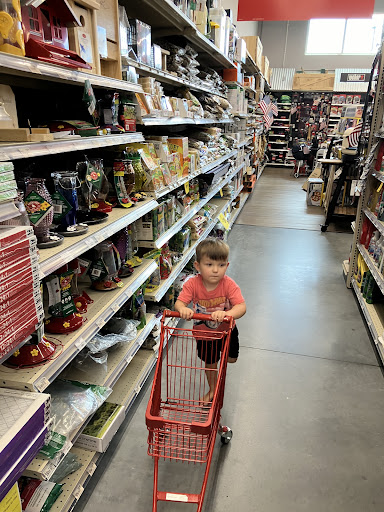Why Clean Grill Grates Matter for Every Grilling Enthusiast
Grill grate cleaner is essential for maintaining food safety, preserving flavor, and extending your grill’s lifespan. Here’s what you need to know:
- Best Methods: Baking soda + dish soap paste (40 mins, highly effective), store-bought degreasers (20 mins, moderately effective)
- Frequency: Quick clean after every use, deep clean every 3-4 cooking sessions
- Safety: Always use proper ventilation, wear gloves, and rinse thoroughly
- Tools: Bristle-free brushes, scrapers, and chainmail scrubbers are safest options
While firing up the grill is a joy, cleaning the grates afterward is often seen as a chore. However, clean grates are essential for great-tasting, safe food. Dirty grates can harbor harmful bacteria, create off-flavors, and cause your grill to deteriorate faster.
The good news is that getting your grates spotless doesn’t have to be difficult. With the right approach, you can efficiently tackle any level of grime.
The helpful team at Lowcountry Ace has years of experience helping Charleston grillers maintain their equipment. We know that the right cleaning routine can transform your grilling experience and your food’s quality.
Why a Clean Grill Grate is Non-Negotiable
Skipping a post-barbecue scrub can ruin your next cookout. Here’s why clean grates are non-negotiable.
Food safety is the top concern. Leftover food particles create a playground for bacteria, which can transfer to fresh food when you fire up a dirty grill. Heating a dirty grate doesn’t kill all the bacteria; it can spread them to your steaks or vegetables.
Flavor integrity is another game-changer. If you cook chicken on grates coated with last weekend’s fish residue, your chicken will taste like fish. Clean grates let your food’s true flavors shine, free from mystery tastes or burnt flavors. Using proper grill grate cleaner techniques ensures every dish tastes as intended.
Proper maintenance also protects your investment by preventing rust and corrosion. Grease and food buildup can eat away at grates and clog burner ports, leading to uneven heating, wasted fuel, and expensive repairs. A little effort now saves you money later.
Finally, clean grates ensure even heat distribution. Dirty grates create hot and cold spots, making consistent cooking impossible. Clean, smooth surfaces transfer heat evenly for perfect sear marks and consistent results every time.
Choosing Your Grill Grate Cleaner: Store-Bought vs. DIY
When facing a grimy grill grate, you have two options: a commercial grill grate cleaner or a homemade solution. Both have their place, and the right choice depends on the level of grime, your budget, and your preference for convenience versus natural ingredients. To help you decide, here’s how they compare:
| Feature | Store-Bought Cleaners | DIY Natural Cleaners |
|---|---|---|
| Effectiveness | Often very high on tough, burnt-on grime. | Good for general grease and mild char. Baking soda + dish soap rated 4/4. Vinegar + baking soda rated 2/4. |
| Cost | Generally higher per use. | Very low, uses common household ingredients. |
| Time | Can be faster-acting (e.g., 20 mins for degreaser). | May require longer soaking times (e.g., 40 mins for baking soda + dish soap, 12+ hours for vinegar + baking soda). |
| Safety | May contain harsh chemicals; requires ventilation, gloves, thorough rinsing. | Generally non-toxic and eco-friendly; less concern about residue. |
Store-Bought Cleaners: The Power of Convenience
Commercial grill grate cleaner products shine when you need serious cleaning firepower. They are specially designed to tackle the toughest grease and char with minimal effort.
Degreasing sprays and foaming cleaners dissolve grease and burnt-on residue quickly. Many modern products are non-flammable, non-corrosive, and phosphate-free. Non-toxic formulas with biodegradable or plant-based ingredients are also popular for powerful cleaning without harsh chemicals.
The biggest advantages of store-bought cleaners are speed and convenience. Most are fast-acting and powerful on tough grime—just spray, wait, and wipe. However, they cost more per use than DIY solutions, and stronger formulas may contain chemicals requiring ventilation and protective gear. Always rinse grates thoroughly to remove any chemical residue.
DIY Natural Grill Grate Cleaner Solutions
For a simple and natural approach, DIY grill grate cleaner solutions are an excellent alternative. These methods use common household ingredients that are gentle and effective.
Baking soda is a mild abrasive and deodorizer, distilled white vinegar uses natural acidity to dissolve grime, and dish soap is a powerful degreaser. Lemon juice also cuts through grease with a fresh scent, while salt can be used as an abrasive scrub.
DIY solutions are non-toxic, inexpensive, and eco-friendly, so you don’t have to worry about harsh chemical residues. The trade-off is that natural cleaners often require more effort and longer soaking times. For instance, a baking soda and dish soap paste needs about 40 minutes, while a vinegar and baking soda solution might need 12 hours or more for heavy soil. The results are worth it, but patience is key.
The Ultimate How-To Guide for Spotless Grates
Ready to get your grates sparkling clean? This guide covers proven techniques for everything from light maintenance to the most stubborn burnt-on mess. We’ll walk you through each step for professional-level results.
Step 1: Gather Your Cleaning Arsenal
Success starts with the right tools. Having a well-organized kit makes the job faster and easier.
Your grill grate cleaner toolkit should include a quality brush or bristle-free alternative. Metal bristles can break off and end up in food, so consider safer options like bristle-free brushes or scrapers.
A dedicated scraper is essential for caked-on residue. Grill bricks work like pumice stones to scrub away heavy carbon buildup without scratching surfaces.
A chainmail scrubber, originally for cast iron, is fantastic for grill grates. Heavy-duty gloves protect your hands, and a large bucket is useful for soaking. Keep paper towels or rags on hand for wiping. A pro tip: crumpled aluminum foil is an effective scraper for warm grates.
Step 2: Match the Method to Your Grate Material
Using a one-size-fits-all approach can damage your grates. Each material needs to be treated accordingly.
Stainless steel grates are durable and can handle vigorous scrubbing. Use most brushes, scrapers, and cleaning solutions, but be sure to rinse thoroughly to prevent water spots.
Cast iron grates require a gentler touch. They benefit from seasoning—a protective layer of baked-on oil that creates a non-stick surface and prevents rust. Avoid harsh soaps or oven cleaners that strip this seasoning. After cleaning, always oil your cast iron grates with a paper towel dipped in vegetable oil.
Porcelain-coated grates are delicate. The enamel coating prevents sticking but can chip easily. Skip metal scrapers and stiff wire brushes in favor of nylon brushes or wooden scrapers. Once chipped, the underlying metal is vulnerable to rust.
Step 3: Tackling Tough, Burnt-On Grime
When regular brushing isn’t enough, it’s time for heavy-duty grill grate cleaner techniques.
The burn-off method is a great starting point. After cooking, turn your grill to high, close the lid, and let it run for 10-15 minutes. This incinerates food residue into ash that brushes away easily once cooled.
For a powerful, natural deep clean, use the soak and scrub method with a baking soda and dish soap paste. Scrape off loose debris, then coat your grates in a thick paste of baking soda and dish soap. Let it sit for at least 30 minutes. The chemistry is simple: baking soda is a mild abrasive, and dish soap cuts through grease. After letting it sit, scrub vigorously. This method takes about 40 minutes and is our top recommendation for its high effectiveness.
The overnight soak with vinegar and baking soda is for truly neglected grates. Place grates in a large garbage bag with 2 cups of vinegar and 1 cup of baking soda. The fizzing reaction loosens grime. Seal the bag and let it sit for 12+ hours. While it requires patience, it’s excellent for loosening debris before scrubbing.
Safety First: Using Cleaners without Risk
Your safety is paramount when using any grill grate cleaner. A few simple precautions can keep your cleaning routine both effective and safe.
Always start by reading the label. Commercial cleaners have specific instructions and safety warnings that are your roadmap to safe use.
Proper ventilation is critical when using chemical cleaners. Work outdoors or in a well-ventilated area to avoid inhaling fumes that can cause headaches or respiratory issues.
Also, wear protective gear. Heavy-duty gloves protect your hands, and eye protection is crucial to guard against chemical splashes.
It is non-negotiable to rinse your grates thoroughly after cleaning. Any residue can end up in your food, so rinse until you’re confident every trace of cleaner is gone.
Finally, if using a traditional wire brush, check it for loose bristles before and after each use. Metal bristles can break off, stick to grates, and end up in food. This is a serious safety concern that has led to emergency room visits, as noted in reports from health organizations like the CDC. This is why we recommend bristle-free alternatives like scrapers, grill bricks, or specially designed bristle-free brushes.
Creating a Simple Grill Maintenance Routine
The secret to avoiding marathon cleaning sessions is consistency. A little effort after every grilling session prevents stubborn buildup and keeps your grill performing at its best. Regular maintenance keeps your grill grate cleaner routine simple and manageable, saving you money on heavy-duty cleaners and extending the life of your grill. These habits work for any gas grill, charcoal grill, or smoker.
Quick Clean (After Every Use)
This simple routine takes just a few minutes and is the foundation of good grill maintenance.
Start with a high-heat burn-off right after you remove your food. Close the grill lid and turn the heat to high for 5-10 minutes to char any remaining food particles.
While the grates are still warm (not scalding), use your grill brush or bristle-free scraper for a thorough brushing. Warm grates release debris much more easily than cold ones.
Cast iron grate owners have one crucial extra step: once the grates cool, wipe them with a paper towel lightly coated in vegetable oil to maintain the protective seasoning.
The Best Grill Grate Cleaner Routine for 2025
Beyond the quick clean, a deeper cleaning schedule ensures peak performance. We recommend a deep clean seasonally, or every 3-4 cooking sessions if you grill often or cook greasy foods.
Removing your grates for soaking is key for a deep clean. Take them out of the grill to use the effective baking soda and dish soap paste or your preferred grill grate cleaner solution. This allows you to clean all the nooks and crannies.
While the grates soak, inspect your burners and grill interior. For gas grills, check burner ports for clogs. For charcoal grills and smokers, remove ash regularly, as it can collect moisture and harden.
Pro tip: dump ash into a bucket after your grilling session. A quick wipe-down of the interior with a paper towel removes debris. Don’t scrub the interior too aggressively; like cast iron, your grill’s interior develops a beneficial “seasoning” that helps with temperature control.
Proper storage of your cleaning tools makes a big difference. Keep brushes and scrapers in a clean, dry place. Soaking them in hot, soapy water after use and rinsing them clean ensures they’re ready for the next session.
Frequently Asked Questions about Grill Grate Cleaning
Here are answers to the most common questions we hear about grill grate cleaner methods and maintenance.
How often should I really clean my grill grates?
A quick clean after every use is ideal. This involves a high-heat burn-off and a good brushing while the grates are warm. For deeper cleaning, aim for 2-4 times per grilling season. If you grill several times a week or cook greasy foods, you should deep clean more often, perhaps every 3-4 sessions.
Can I use oven cleaner on my grill grates?
While effective on tough grime, oven cleaners are extremely caustic. Always check your grill manufacturer’s guidelines first, as some finishes can be damaged. If you proceed, work outdoors, wear heavy-duty gloves, and protect surfaces. Most importantly, rinse the grates extremely thoroughly to remove all chemical residue.
We strongly advise against using oven cleaner on porcelain-coated grates, as it can strip the finish. Due to its chemical nature, consider it a last-resort option.
Are bristle-free grill brushes actually better?
Yes, absolutely. They eliminate the risk of metal bristles breaking off and ending up in food, which can cause serious injury. Modern bristle-free options like sturdy nylon brushes and wooden scrapers are excellent alternatives.
Chainmail scrubbers are also fantastic, especially when paired with a cleaning paste. Bristle-free alternatives provide peace of mind and spotless grates.
Conclusion
Maintaining spotless grill grates doesn’t have to be a chore. The benefits are clear: better-tasting food, safer cooking, and a longer-lasting grill. The key is finding the right grill grate cleaner approach for your grill type and lifestyle.
Whether you choose a store-bought degreaser or a DIY paste, you now have the knowledge to tackle any grime. Remember to match your method to your grate material—gentle care for porcelain and protective oil for cast iron.
Most importantly, a simple maintenance routine will transform your grilling experience. A quick burn-off and brush after each use prevents the need for marathon cleaning sessions.
Cleaning your grill can become a satisfying part of the grilling ritual.
For all your grilling needs, from grill grate cleaner products and bristle-free brushes to the latest grills and smokers, the helpful team at Lowcountry Ace in Charleston is ready to assist. We understand the local grilling lifestyle and are here to help you make the most of every cookout. Visit us at the Riverland Market on Folly Road, serving the James Island and Folly Beach areas, or explore our selection online to keep your grill in pristine condition.
Visit Lowcountry Ace for all your grilling needs!
Lowcountry Ace Hardware: Your one-stop shop for home improvement. We offer quality products from trusted brands and expert advice from our experienced staff. Located on James Island, visit us for tools, hardware, fishing gear, power tools, building materials, grills & smokers, electrical and plumbing supplies, and more.
















